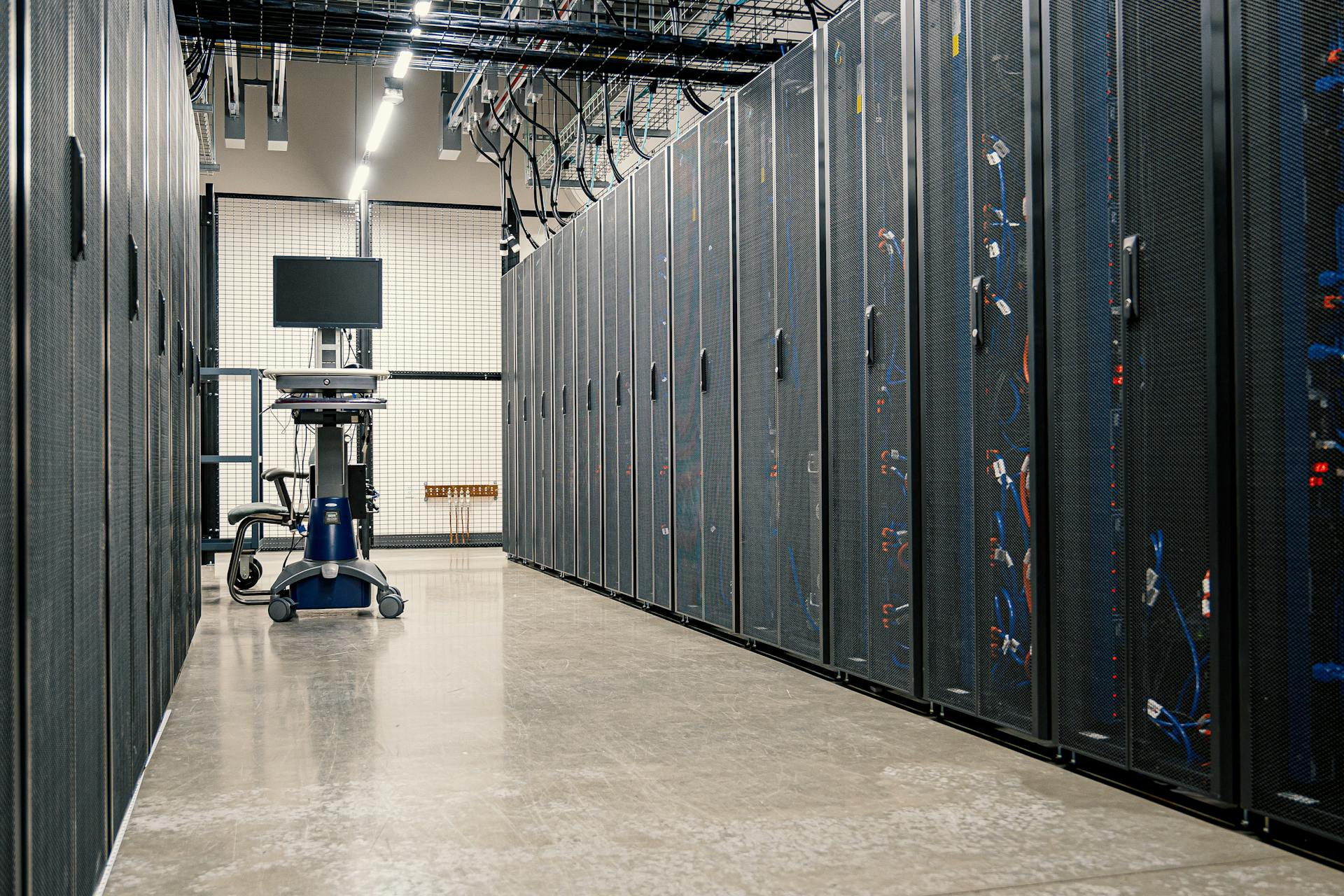
Cloud computing is a type of computing where IT-related tasks are delivered as a service over the Internet. It is a model for enabling ubiquitous, convenient, on-demand network access to a shared pool of configurable computing resources (e.g., networks, servers, storage, applications, and services). Cloud computing relies on sharing of resources to achieve coherence and economies of scale,Similar to a utility (like the electricity grid) cloud computing depends on the network to deliver services and uses economies of scale to provide services at a lower cost than would be possible on a per-user or per-device basis.
The basic concept of cloud computing is the ability to access both data and computing resources from a remote location. The term "cloud" is used to refer to the network of computers that deliver these services. Cloud computing is a newer model of computing that is becoming increasingly popular as businesses and individuals alike look for ways to save money and increase efficiency.
There are a number of advantages to cloud computing. Perhaps the most significant is the fact that it can help to save money. By using the resources of a remote computer (or "cloud"), businesses and individuals can avoid the need to invest in their own equipment. This can be a significant saving, especially for businesses who require a lot of computing power.
Another advantage of cloud computing is that it offers increased flexibility and scalability. businesses can more easily adjust their use of computing resources to match their changing needs. For example, if a business needs to increase its use of computing resources during a busy period, it can do so without having to make a long-term commitment or invest in new hardware.
finally, cloud computing can offer increased reliability. When businesses store data and applications on their own computers, they face the risk of that data being lost if something happens to the computer (such as a power outage or hardware failure). However, when data is stored on a remote computer, it is less likely to be lost in the event of a problem with the local computer.
There are a number of disadvantages to cloud computing as well. One is that it can be less secure than storing data on a local computer. This is because data stored on a remote computer is more vulnerable to being hacked or accessed without permission. Another disadvantage is that cloud computing can be slower than using a local computer, depending on the speed of the Internet connection.
Despite these disadvantages, cloud computing is likely to become
Consider reading: Concept of Money
Frequently Asked Questions
What are the benefits of cloud computing for startups?
Cloud computing offers great advantages for startups that need to speed up their product development and launch cycles. The cloud can give startups: 1) increased agility; 2) accelerated time-to-market; 3) lower operating costs; 4) simplified deployment and management.
What are the advantages of cloud-based services?
Some of the key advantages of using cloud-based services include that they are fast and easy to use, can be accessed from any device, and can be scaled up or down as needed. They also offer storage flexibility and portability, so your business can move them between different sites or platforms without worrying about changes affecting the data. Finally, cloud-based services often have lower costs than traditional technologies, making them a more cost-effective option overall.
What is cloud computing and how does it work?
Cloud computing is a delivery model for services that allows users to access applications and data over the Internet. It relies on remote resources, saving organizations the cost of servers and other equipment. A “utility” pay structure means users only pay for the resources they use. CSPs manage underlying infrastructure, enabling organizations to focus on application development and other priorities.
Is the cloud a good way to run a business?
Cloud computing is a way to use the internet and remote servers to provide access to applications and data. This allows businesses to save on infrastructure costs, since they can offload their server and application maintenance to third-party providers. In addition, companies can access online applications and data from anywhere in the world. There are many advantages to adopting cloud infrastructure, but there are also a few disadvantages. The main disadvantage is that companies typically have no control over the development or management of the cloud infrastructure. This means that they may not be able to customize or change how the infrastructure operates, which could lead to incompatibility and frustration among team members. Additionally, security concerns related to using the cloud should always be considered. Since data is accessed remotely, it’s possible for hackers to steal information or infiltrate servers without being detected.
Is cloud computing the right technology for your business?
The benefits of cloud computing depend on your business and what technology you use. Cloud computing can provide cost-effective solutions for organizations, such as eliminating the need for IT personnel to manage multiple systems. However, uptake of this technology has been slow, so it may not be the best option for all businesses. If you are a startup, using cloud services could increase efficiency and speed up the development process.
Sources
- https://haren.in/24275/which-statement-accurately-describes-the-concept-of-elasticity-in-cloud-computing
- https://www.coursehero.com/file/p4d40oal/Question-13-Which-statement-describes-the-concept-of-cloud-computing-separation/
- https://azure.microsoft.com/en-in/resources/cloud-computing-dictionary/what-is-cloud-computing/
- https://www.salesforce.com/products/platform/best-practices/benefits-of-cloud-computing/
- https://www.fluxmagazine.com/7-benefits-of-cloud-computing/
- https://blog.udemy.com/disadvantages-of-cloud-computing/
- https://www.liveabout.com/disadvantages-of-cloud-computing-4067218
- https://evolve.ie/q-and-a/what-are-the-disadvantages-of-cloud-computing/
- https://www.ibm.com/cloud/blog/cloud-computing-history
- https://www.cloudhq.net/blog/the-future-of-it-in-cloud-computing/
- https://www.mindinventory.com/blog/types-of-cloud-computing/
- https://www.educba.com/cloud-computing-service-providers/
- https://www.veritis.com/blog/what-are-the-different-types-of-cloud-computing-services/
- https://www.educba.com/types-of-cloud-services/
- https://www.i2tutorials.com/cloud-computing-what-are-the-different-cloud-computing-services/
Featured Images: pexels.com


